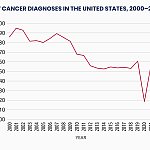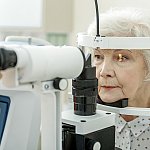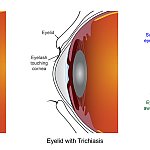
Past research shows that
SCD occurs when a person experiencing sudden cardiac arrest (SCA) — where their heart suddenly stops pumping — is not treated successfully, and usually happens within 1 hour of disease symptoms occurring.
People with heart disease are also at an increased risk of developing depression, and some studies further show that depression is a
Previous research has moreover suggested that some antidepressant medications are associated with a higher risk of cardiovascular issues, including
“Antidepressants are commonly prescribed for psychiatric conditions such as depression or OCD,” Jasmin Mujkanovic, MD, a doctoral researcher in the Department of Cardiology at Rigshospitalet Hjertecentret in Denmark told Medical News Today.
“These medications can have potential adverse effects such as QT prolongation [when the heart muscle takes longer to contract and relax], which may increase the risk for adverse arrhythmic events, and in rare cases, SCD. It is important to recognize that having depression is itself an independent risk factor for SCD/cardiovascular disease.”
– Jasmin Mujkanovic, MD
Mujkanovic is the first author of a new study recently presented at EHRA 2025, the scientific congress of the European Society of Cardiology, which further confirms that antidepressant use may increase a person’s risk for SCD, and differs between age groups and years of medication use.
For this study, Mujkanovic and his team analyzed medical information and death certificates for Denmark adult residents between the ages of 18 and 90 in 2010.
Researchers categorized participants by whether or not they had experienced SCD, and by their antidepressant medication use — between 1 and 5 years, or 6 years and longer.
At the study’s conclusion, researchers found that participants who used antidepressants for a period of 1 to 5 years had a 56% increased risk of SCD.
Participants who used antidepressants for 6 or more years had a 2.2 times higher risk for SCD.
“The significance of these findings suggest that longer exposure time increases the risk for SCD,” Mujkanovic said. “However, it is important to be cautious when interpreting this. Longer duration might reflect more severe or persistent depression, which itself contributes to cardiovascular risk. It is difficult to disentangle the effects of medication from the underlying condition.”
When breaking down study results by age groups, researchers found some differences in antidepressant use and SCD risk.
For participants between the ages of 30–39, those who used antidepressants for 1 to 5 years were three times more likely to experience SCD than those who did not take the medications. This risk increased to five times higher if they used antidepressants for 6 or more years.
In the 50-59 age group, 1 to five years use of antidepressant medications doubled their SCD risk, and quadrupled for those using the drugs for 6 or more years.
And when looking at participants between the ages of 40 to 79, scientists found their SCD incidence rate ratio was significantly higher for those who used antidepressants for 6 years or more compared to those who used them for 1 to 5 years.
“Within each age group, those exposed to antidepressants had a higher risk of SCD, compared to their unexposed peers,” Mujkanovic explained.
“However, overall, a 30-39 year old on antidepressants would still have a lower absolute risk than an unexposed 70-79 year old,“ he noted. “This is largely due to competing risk, as baseline risk for SCD increases with age. While antidepressant exposure may increase relative risk in younger individuals, their absolute risk remains lower than that of older individuals.”
However, Mujkanovic also provided some reassurance:
“The main takeaway [from this study] is please do not panic if you are on antidepressants. Although the study shows that the risk is increased among the exposed, depression is itself an independent risk factor for cardiovascular disease and SCD. The increased risk is most likely multifactorial, and this highlights the need for a more holistic approach to managing mental health as well as cardiovascular health in these patients.”
MNT had the opportunity to speak with Cheng-Han Chen, MD, a board-certified interventional cardiologist and medical director of the Structural Heart Program at MemorialCare Saddleback Medical Center in Laguna Hills, CA, about this study.
“This study found an association between antidepressant use and future risk of SCD,” Chen, who was not involved in the research, commented. “As this was a population study, the direction of causality cannot be determined.“
“It may be that the antidepressants increased arrhythmias in patients, leading to an increased risk of SCD,” he hypothesized. “However, it is also possible that the underlying depression itself led to increased SCD, through increasing cardiovascular risk factors. Patients taking antidepressant medications should talk to their physicians before making any changes to their medications.”
“There is a close relationship between depression and other areas of a person’s health, such as their heart health,” he continued.
“Untreated depression can increase someone’s risk of developing heart disease, and many people with heart disease experience depression,” Chen further explained. ”Antidepressant medications can thus play an important role in improving many aspects of an individual’s health. Future research is needed to determine the mechanisms by which antidepressants might increase someone’s risk of SCD.”
MNT also spoke with Grant R. Simons, MD, chief of Heart Rhythm Services at Hackensack University Medical Center in New Jersey, not involved in the study, about this research.
Simons commented that while the findings might seem alarming at first glance, it is crucial to consider the limitations of observational studies and avoid jumping to conclusions about causality.
“Further research is needed to understand the complex relationship between psychiatric disorders, antidepressant use, and SCD risk,” he continued. “Patients should discuss any concerns about their medication with their doctor and not discontinue treatment abruptly. While a 56% increased risk and a doubled risk with longer-term use sounds dramatic, it’s important to interpret these findings cautiously and within a broader context.”
For example, Simons said the study shows an association, not necessarily a causal link, and this research needs to be examined for whether it differentiates between classes of antidepressants.
“It’s possible that other factors related to having a psychiatric disorder and taking antidepressants, such as lifestyle, other medications, or the underlying illness itself, contribute to the increased risk of SCD,” he continued. “For example, it is important to recognize that the use of antidepressants for longer periods of time may be a marker for other risk factors for sudden death. The study may have controlled for some of these, but it’s difficult to account for everything.”
“It’s important to see how this study aligns with previous research on this topic,” Simons added. “If other studies have shown similar findings, it strengthens the evidence. If this study contradicts previous research, more investigation is needed.”





